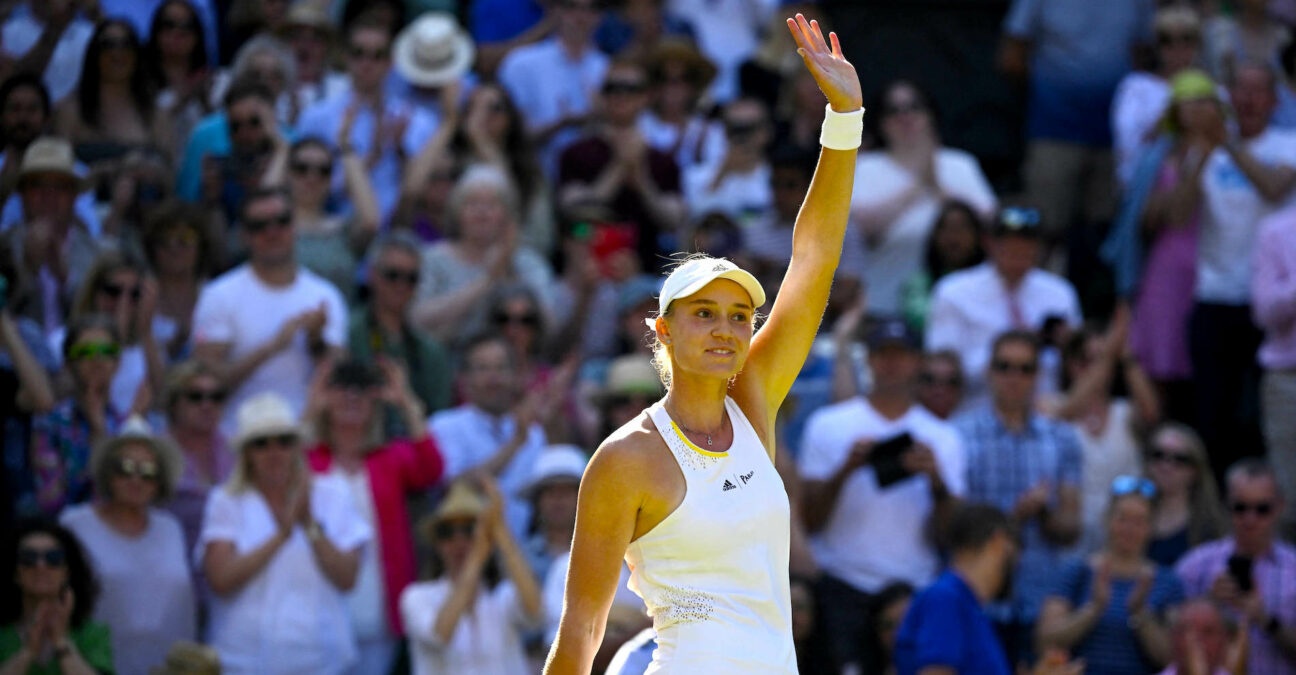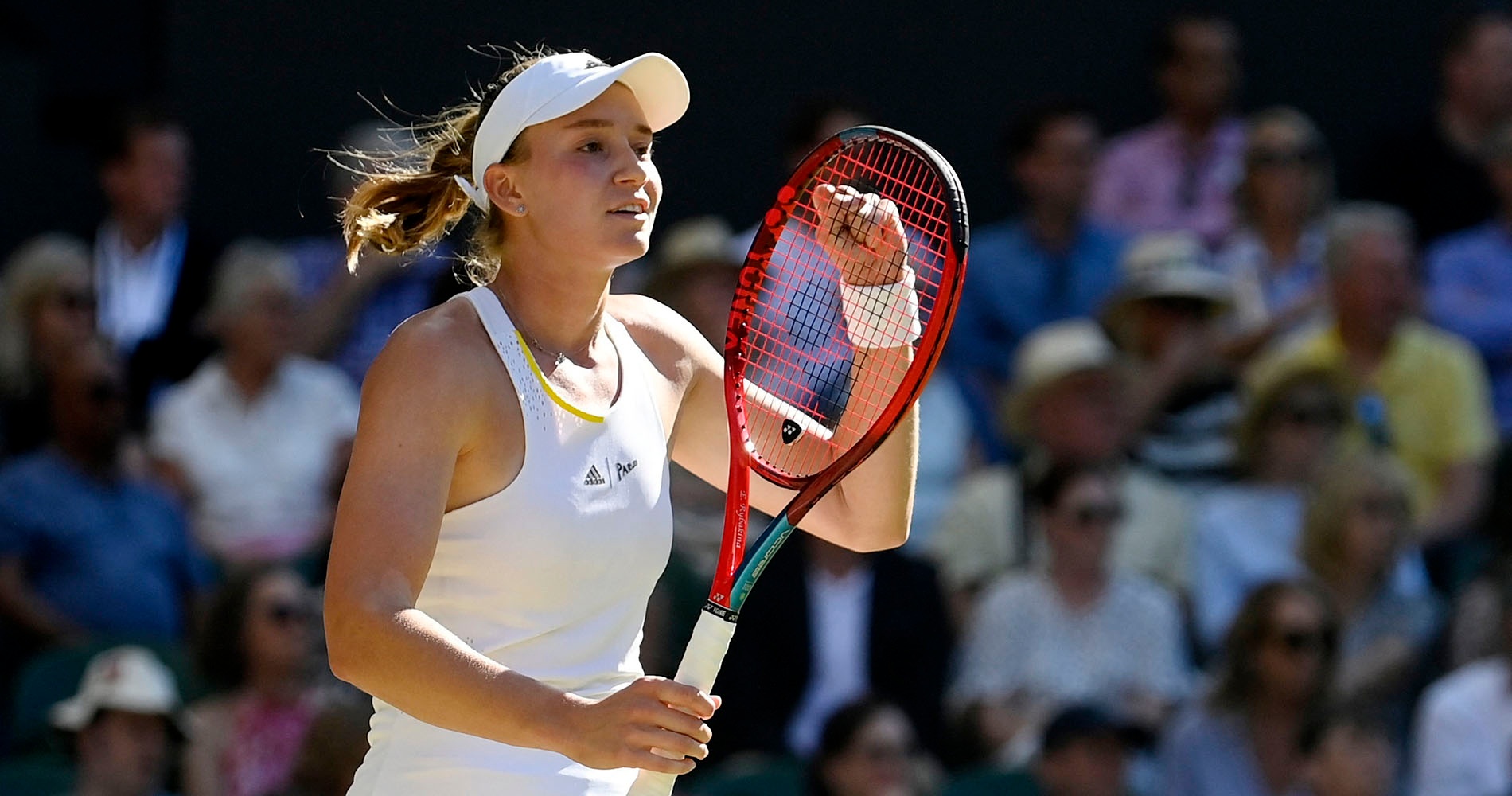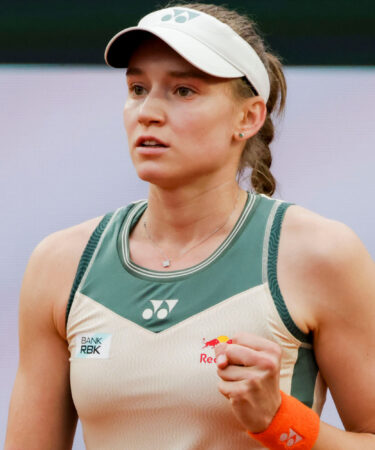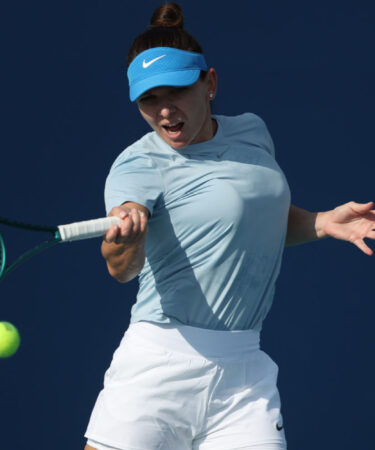Rybakina comes of age on the big stage to set Wimbledon final with Jabeur
Elena Rybakina defeated Simona Halep 6-3, 6-3 to reach the Wimbledon final. She’ll play Tunisian Ons Jabeur, the No 3 seed, for the title.
 Elena Rybakina celebrates winning her semi final match against Simona Halep || © AI / Reuters / Panoramic
Elena Rybakina celebrates winning her semi final match against Simona Halep || © AI / Reuters / Panoramic
For the first time in Open Era history, the Wimbledon women’s singles final will feature a pair of first-time finalists. Hours after Ons Jabeur made history by becoming the first Tunisian and Arab Grand Slam singles finalist, Elena Rybakina followed suit by blitzing 2019 champion Simona Halep, 6-3, 6-3, to become Kazakhstan’s first Grand Slam singles finalist.
Could Rybakina believe what she had just done?
“Not really,” she told the Centre Court crowd after her biggest career triumph.
The No 17 seed, making her 12th appearance in a Grand Slam draw, was on the front foot from the start against Halep. The 23-year-old broke in her first return game of the match, forcing a Halep error with a forehand drive, and kept the pressure on for the remainder of the opening set, closing it out with her fifth consecutive hold at the 37-minute mark.
“She was nailing the ball from the baseline, corner to corner,” 18-time Grand Slam champion Chris Evert, who commentated the match for ESPN, said at the conclusion of the match.
“I was really focused today, and really happy with my performance,” Rybakina added. “I think that I played really solid today. I don’t know how to describe it, but it was really, really good – usually of course I have ups and downs, coming from the nerves, but I think today I was mentally prepared.”
Halep struggled on serve – and tactically
Halep entered the match having won 12 consecutive matches and 21 consecutive sets at Wimbledon, but she never really found her best form in the contest.
The 30-year-old’s serving woes helped Rybakina build a lead twice in the second set. She broke in the first game of the second set – aided by three Halep double-faults, and after a break back by Halep, she broke again for 3-2, thanks to another two double-faults by the Romanian.
In total, Halep hit 0 aces and 9 doubles faults – the No 16 seed only won 38 percent of her second-serve points – much lower than her tournament average, which finished at 56 percent second-serve points won.

Halep’s reluctance to change tactics
Another central theme was Halep’s reluctance to change tactics. Rather than try to take Rybakina off her baseline with variation, she elected to stand toe-to-toe with the 6’-tall Kazakh.
It was a strategy that paid very few dividends.
Interestingly, Halep dropped to 10-6 this year against players 5’9″ or taller; she is 21-3 against players 5’9″ or shorter, per ESPN.
Jabeur winning their last two contests
“She was dialed in,” said Mary Joe Fernandez, ESPN commentator, of Rybakina’s performance. “She had the timing, she had the control, and her shots were just bigger and better.”
Rybakina did not wilt under the pressure of Centre Court debut, against the former champion. Instead she bravely took charge of rallies down the stretch and finished off her victory with a fourth break of the Halep serve, stabbing a backhand return winner to close the contest in one hour and 16 minutes.
Jabeur and Rybakina have met three times previously, with the Tunisian winning their last two contests.






People in this post
More tennis news
“Many said that the format was made for me” – Machac and UTS, the perfect combination

“I hope it creates a precedent” – Medvedev on Sinner’s doping ban deal

Brazil, Next Gen Finals, Australian Open: Everything you always wanted to know about Joao Fonseca (but never had time to find out) – updated after Argentina Open 2025 triumph

Qatar Open: Qualifier O’Connell edges past wildcard Habib to book spot in second round

Dubai Open: Kessler downs Doha champ Anisimova to move into second round




